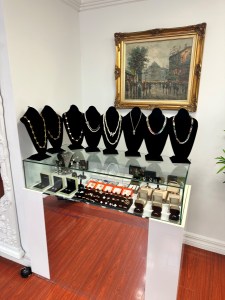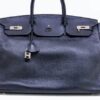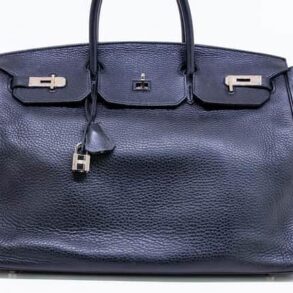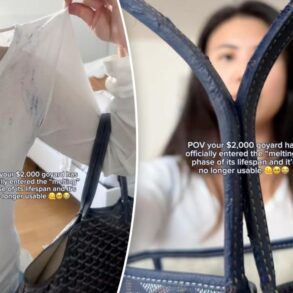The city of Miami’s police department continues to investigate a multimillion-dollar counterfeit goods operation that led to the arrests of a father and son.
After first arresting Giovanni Tummolillo Jr. late last month, authorities arrested his father Giovanni Tummolillo Sr. at Miami International Airport on Sept. 10. The two men, who are 40 and 72 respectively, are facing counterfeiting charges for allegedly selling designer knockoff handbags, jewelry and other goods from their store Leather Goods LLC at 25 SE 2nd Avenue in Miami.
The estimated street value of the seized goods is between $6 million and $7 million, according to Miami Police Department officer Michael Vega. Dozens of knockoff versions of Chanel, Louis Vuitton, Dior, Gucci, Fendi, Yves Saint Laurent and other designer handbags were displayed in the store, based on photos shared by investigators. Jewelry was also merchandised in a glass case including items with phony turquoise blue Tiffany & Co. boxes. Vega described the counterfeit items as “superfakes.” That term refers to counterfeit items that so closely resemble the original products that most shoppers would not recognize the difference.
Someone who police officials described as “an individual of the group” gave information that counterfeit merchandise was being sold at the Miami business. During the investigation, a confidential informant entered the business and made a controlled purchase of counterfeit merchandise, according to the police report. Based on information uncovered during the investigation, undercover detectives attempted to buy counterfeit goods “that appeared to be associated with well-known brands” like Louis Vuitton, Hermès, Van Cleef & Arpels, Balenciaga among others.
You May Also Like
Investigators found that Leather Goods LLC was registered in the state of Delaware and that the company’s open bank account listed Tummolillo Sr.’s home address as the business’ mailing address. The Miami police department worked with the Miami-Dade police department’s organized retail crime squad, U.S. Homeland Security investigators and undercover detectives. In late April, investigators purchased $1,150 worth of phony Van Cleefs & Arpels jewelry from him during a store visit and recorded the exchange audibly undercover. On another occasion in July, investigators purchased counterfeit goods from Tummolillo Jr., who first needed to confirm that a sale could be done via Zelle, which required phoning his father.

Counterfeit jewelry was also purchased by investigators in the store.
Photo Courtesy Miami Police Department
A licensed private investigator that had been retained by Louis Vuitton, Hermès, Cartier, Gucci and Van Cleef & Arpels was used as a trademark representative for the private industry firms. That determined that the goods were counterfeit. The seized goods were photographed and those images were sent to the respective brands’ in-house trademark specialists, who later provided affidavits that verified the goods were counterfeit. “To any ordinary and prudent person these copies looked identical to any of the real products,” according to the police report.
After a search warrant was issued for Leather Goods in late August, investigators seized knockoffs with a street value of $3 million. During that initial search, manufacturing equipment and other merchandise was taken and verified by the trademark specialist that such apparatus is used to make counterfeit goods. On that same day, a search warrant was issued for Tummolillo Sr.’s residence, which as aforementioned, had been listed as Leather Goods’ place of business. But he was not at home at that time.
Encouraging shoppers to buy from reputable resources, the U.S. Customs and Border Protection department highlights on its site how counterfeit purchases lead to lost revenue for legitimate companies, and how lost profits can result in lost jobs over time. Referencing the global scope of the problem, the CBP said that nearly 66 percent of all of its intellectual property rights seizures were from China in fiscal 2023.
This post was originally published on this site be sure to check out more of their content.






